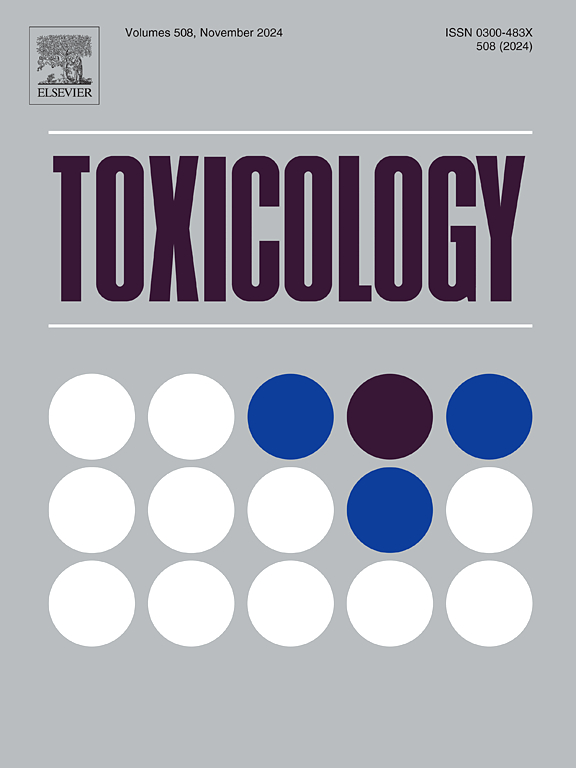脱氧雪腐镰刀菌醇与男性生殖毒性:揭示潜在风险。
IF 4.6
3区 医学
Q1 PHARMACOLOGY & PHARMACY
引用次数: 0
摘要
脱氧雪腐镰刀菌醇(DON)是一种非常普遍的真菌毒素,以其对胃肠道和免疫系统的有害作用而闻名。最近的研究也表明它有可能损害生殖功能。本文综述了目前关于DON对男性生殖器官影响的证据,特别强调了其激素抑制作用、生殖上皮的破坏和血睾丸屏障的破坏。这篇综述还强调了DON对较少探索的生殖器官的影响,如附睾、前列腺和精囊。这些作用主要是由增加的氧化应激、炎症和细胞凋亡介导的。总的来说,这些改变导致精子的质量和数量下降,从而损害了男性的生育能力。此外,我们研究了评估父母DON暴露对后代发育的影响的研究,这些研究揭示了在多个发育阶段的不利影响。这些发现巩固了DON作为男性生殖健康相关毒物的分类。本文章由计算机程序翻译,如有差异,请以英文原文为准。
Deoxynivalenol and male reproductive toxicity: Unraveling the hidden risks
Deoxynivalenol (DON) is a highly prevalent mycotoxin known for its deleterious effects on the gastrointestinal and immune systems. Recent studies have also demonstrated its potential to impair reproductive function. This review compiles current evidence on the impact of DON on male reproductive organs, with particular emphasis on its hormonal suppressive effects, disruption of the germinal epithelium, and compromise of the blood–testis barrier. This review also highlights the impact of DON on less-explored reproductive organs, such as the epididymis, prostate, and seminal vesicles. These effects are primarily mediated by increased oxidative stress, inflammation, and apoptosis. Collectively, these alterations result in reduced sperm quality and quantity, thereby impairing male fertility. In addition, we examine studies evaluating the consequences of parental DON exposure on offspring development, which reveal adverse effects across multiple developmental stages. The findings presented consolidate the classification of DON as a relevant toxicant to male reproductive health.
求助全文
通过发布文献求助,成功后即可免费获取论文全文。
去求助
来源期刊

Toxicology
医学-毒理学
CiteScore
7.80
自引率
4.40%
发文量
222
审稿时长
23 days
期刊介绍:
Toxicology is an international, peer-reviewed journal that publishes only the highest quality original scientific research and critical reviews describing hypothesis-based investigations into mechanisms of toxicity associated with exposures to xenobiotic chemicals, particularly as it relates to human health. In this respect "mechanisms" is defined on both the macro (e.g. physiological, biological, kinetic, species, sex, etc.) and molecular (genomic, transcriptomic, metabolic, etc.) scale. Emphasis is placed on findings that identify novel hazards and that can be extrapolated to exposures and mechanisms that are relevant to estimating human risk. Toxicology also publishes brief communications, personal commentaries and opinion articles, as well as concise expert reviews on contemporary topics. All research and review articles published in Toxicology are subject to rigorous peer review. Authors are asked to contact the Editor-in-Chief prior to submitting review articles or commentaries for consideration for publication in Toxicology.
 求助内容:
求助内容: 应助结果提醒方式:
应助结果提醒方式:


